Let’s continue going through this list of words from an article I found in The Independent. Here is another list of 30 items of British English slang. Notes and links available below.
 [DOWNLOAD]
[DOWNLOAD]
Reminder: London LEP MeetUp – Sunday 17 November
From 2PM at the Fitzroy Tavern, 16 Charlotte Street, London W1T 2LY.
Email Zdenek to let him know you’re coming – teacherzdenek@gmail.com
Introduction
Welcome to LEP#625. This episode is all about British English slang.
Let’s continue going through this list of words from an article I found in The Independent.
Here’s the original link
https://www.independent.co.uk/life-style/british-phrases-english-language-sayings-britain-england-uk-different-a8138046.html
A note on slang
Every version of every language has slang and also cultural reference points that are unique to that language. English is no exception of course and because it is such a diverse language in terms of the number of different dialects it has, it is quite possible for there to be slang in certain dialects that other speakers of the same language don’t understand. For example, Americans might not understand certain things said in British English. Of course it’s also difficult for learners of English to deal with slang. It’s not normally the language you encounter in the coursebooks and so on, and yet slang is very commonly used.
So, a dialect of English like British English might be difficult to understand for anyone who wasn’t born or grew up there.
That’s what this article was all about and the 88 bits of English (either words or expressions) listed, reflect this uniquely British version of English that might be confusing for everyone else in the world.
But I am here to try to lessen that confusion with my explanations and examples.
You can use this episode series to quickly learn a whole world of slang, which will help you understand and be understood by Brits more easily.
And even if you’re not planning to get chatting to some British people any time soon, you can consider this series just to be a chance to broaden your horizons as far as the English language is concerned and learn yet more of this precious vocabulary – because vocabulary probably is the most precious stuff of all. This is the difference, often, between intermediate English and advanced or proficient English – knowing how to adjust your style of English to meet various different situations. A knowledge of slang is essential, I think, in order to know all the possible light and shade in this language.
As ever with these articles, there are always a few little words or phrases that I dispute or at least don’t know. Last time it was “dench” which neither my brother nor I use, ever. (I made several edits to the episode after initially releasing it, with some comments that my brother sent to me via text). Let’s see if there are other similar words and phrases that I don’t use, perhaps because it’s a regional thing and not said in my area growing up.
As we go through the list I will let you know which ones I actually use and which ones I don’t. If you’re using me as a model for the type of English you want to speak, you can perhaps disregard any of the ones which I don’t use. But of course you should always be listening carefully to the English language as it is used and if you spot any of these expressions being used on TV, in music, films or just in normal life then that’s worth noting.
Also, I think that sometimes I use these expressions but in a knowing, ironic way. For example, if I called someone “the bee’s knees” I think I’d be doing it largely because I like the sound of the expression, but knowing it’s a bit old-fashioned. It can be fun sometimes just to use these different expressions for a laugh as a way to add colour or humour to your speaking.
So I will also let you know if I think I use these expressions with a bit of irony.
In part 1 I did 30 of these. Let’s see if I can do the next 30 and then the final 28 in part 3.
I’m going to have to be quick, so pay attention!
Text in italics has been pasted from the original article (link above).
-
“Faff”
to faff about/around
To “faff” is to waste time doing very little.
“Faff” comes from the 17th century word “faffle,” which means to flap about in the wind.
“We were just faffing about.”
Messing around
Stop faffing around. Come on, let’s go!
- How much time in your typical day do you spend just faffing around?
- What do you actually do when you faff around?
2. “Fag”
A cigarette.
A “fag end” is also the ratty bits towards the ends of a reel of fabric, which are the worst and the cheapest bits of the reel. Historically, “fags” were the cheaper cigarettes made of lower grade tobacco, however, the slang has spread to encompass all cigarettes.
“Could I scrounge a fag off you, please?”
In American English it’s a gay person (very offensive word) so watch out for that.
– “Can I bum a fag off you mate?”
- What’s the nickname you give to cigarettes in your language?
A fag butt, to stub out a cigarette, to ask for a light, a ciggie
3. “Fit”
“She’s really fit though, isn’t she?”
Sexually attractive
When I was a kid we all thought our maths teacher was really fit.
Used to describe someone physically attractive, usually referring to their physique.
“He’s fit.”
“She’s got a fit body”
Obviously it also means to be in good physical condition, like an athlete.
Hot
- Which actor or actress do you think is quite fit/fit/really fit?
4. “Flog”
To “flog” means to sell something — usually quickly and cheaply.
“I’m trying to flog my old sofa. Do you know anyone that might be interested?”
- What is the last thing that you flogged?
Flog It (TV show)
https://www.youtube.com/watch?v=uvd4HvYVioM
5. “the Full Monty”
The entire thing, with all the extras included.
After “The Full Monty” film was released in 1997, there was some international confusion over the phrase in which it was taken as a euphemism for stripping. However, “the full Monty” actually refers to pursuing something to the absolute limits.
“The full Monty” historically refers to an old tailor called Sir Montague Burton. Going “the fully Monty” meant purchasing a full three-piece suit, a shirt, and all of the trimmings.
“Our Christmas dinner had everything from sprouts to Yorkshire puddings. If you’re going to have a roast, have the full Monty!”
I’m going to go for the full monty. A full English breakfast.
I very rarely use it.
- Have you ever had a full English breakfast? Did you go for the full monty? How about a Sunday roast? Full monty?
6. “Full of beans”
Someone that’s energetic, lively, or enthusiastic might be described as “full of beans.”
This phrase could be a reference to coffee beans, although these claims have been disputed.
Beans generally give you energy (and gas) so the meaning is pretty clear for me.
“Goodness, you’re full of beans this morning!”
- How do you feel right now? Do you feel full of bean? Or are you feeling knackered?
7. “Gaff”
Where do you want to do it? Your gaff? My gaff?
“Gaff” is an informal word for “home.”
It sounds cockney to me.
“What are you up to this weekend? We’ve got a party at our gaff, if you fancy it?”
I’d use it ironically because it sounds really cockney. It’s the kind of thing you hear in Eastenders.
Have you ever seen Eastenders?
Peep Show?

Veep?
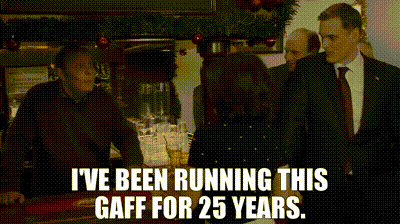
Layer Cake?
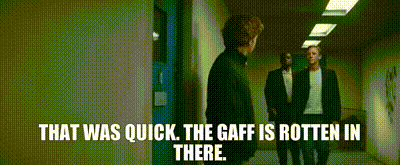
Withnail &a I?

8. “Gallivanting”
To “gallivant” means to roam, or to set off on an expedition, with the sole intention of having some light-hearted fun. I imagine someone skipping through a forest or a hilly meadow.
You’re supposed to stay and be a princess, not go gallivanting after pirates!
I’m going to gallivant right over (Game of Thrones S6E5) https://getyarn.io/yarn-clip/6b807166-bb4c-482d-99fd-ad1247186bcc
“Off they go again, gallivanting.”
I would only use this in a kind of sarcastic way, in order to complain about someone doing other things when they should be focusing on something more serious.
Off he goes, gallivanting around the South of France when he should be at home sorting out all the problems.
9. “Geezer”
A “geezer” is a man that could be described as “suave” or “dapper,” and is often suited and booted. Men from east London are also commonly referred to as “geezers.”
A geezer is a slang word for a man, like a bloke.
“That guy’s got such swagger — he’s a proper geezer.”
I use this one quite a lot although it does sound quite cockney (other regional dialects use it too). You can also say “bloke”.
10. “Give me a tinkle on the blower”
“Give me a call” or “ring me.” The phrase is sometimes shortened to “give me a tinkle.”
“Tinkle” refers to a phone’s ring, while “blower” is slang or telephone and refers to the device that predated phones on Naval ships. Sailors would blow down a pipe to their recipient, where a whistle at the end of the pipe would sound to spark attention.
“Give me a tinkle on the blower.”
I never say it.
11. “Gobsmacked”
Astounded; bewildered; shocked.
“Gob” is slang for mouth, so if you’re gobsmacked, you’re shocked to the point of clasping your jaw in disbelief.
“I was gobsmacked!”
It’s a good word which everyone should know.
- When was the last time you were gobsmacked? Have you ever felt gobsmacked while watching a film or TV show, like when a character dies unexpectedly?
12. “Gutted”
Not to be confused with literally being disembowelled, someone that says they’re “gutted” is devastated or extremely upset.
“I was absolutely gutted.”
It’s one of the most common and recognisable bits of UK slang, along with knackered and chuffed.
- How would you feel if you got invited onto Luke’s English Podcast? Would you feel gutted or chuffed?
13. “Half past”
While Americans are more likely to say “seven thirty” or “five fifty,” Brits will more often than not refer to times in “minutes past” the hour (or minutes to). Eg, “half past seven,” and “ten to six.”
It’s unclear why Brits appear to favour analogue time-telling while Americans go for the digital format. (we don’t do it so much any more)
“It’s twenty past eleven.”
On the right hand side of the clock, it’s past (including half past).
On the left hand side of the clock, it’s to.
Quiz – say these times
Answers below
1:10
2:15
3.20
4.25
5.30
6.35
7.40
8.45
9.50
10.55
Answers
1:10 “ten past one”
2:15 “a quarter past two”
3.20 “twenty past three”
4.25 “twenty five past four”
5.30 “half past five”
6.35 “twenty five to seven”
7.40 “twenty to eight”
8.45 “a quarter to nine”
9.50 “ten to ten”
10.55 “five to eleven”
Sometimes these are abbreviated to “half past” “quarter past” “ten to” etc.
- What time do you get up?
- What time did you start listening to this?
- What time do you go to bed?
- What time does your lunch end?
14. “Hank Marvin”
“Hank Marvin” is Cockney rhyming slang for “starving.”
“I’m Hank Marvin” means “I’m hungry” or “I’m ravenous.”
“When are we going to eat? I’m absolutely Hank Marvin.”
I do use this one, and my wife has learned to understand it.
- How are you feeling right now? Full, stuffed, fine, a bit peckish, hungry, absolutely Hank Marvin?
15. “Innit”
“Innit” is an abbreviation of “isn’t it” most commonly used amongst teenagers and young people.
You can add it as a tag question on the end of a sentence, no matter what the auxiliary verb is.
He hasn’t done his homework, innit.
He ain’t done his homework innit.
You ain’t done your homework innit.
It can also be used as a response as a way to confirm something.
“It’s really cold today.”
“Innit though.”
I think also we use “Is it?” as a way to show surprise.
“My mum won the lottery”
“Is it?” or “Yo, is it fam!?”
Sounds terrible when I say it.
I use “innit” quite a lot, but ironically, meaning I know I’m not normally the type of person who uses it and I’m kind of imitating Ali G.
16. “Leg it”
Make a run for it; run away; scarper.
“That’s when all of the lights came on, and so we legged it.”
We used to say this all the time when we were kids.
17. “Long”
I never say this and if I did it would be embarrassing. It’s the sort of thing I’d hear from schoolkids on the bus in London.
The same people who’d say things like “innit” and “blud” or “fam”.
Something that takes a lot of effort and probably isn’t going to be worth all of the effort, either, could be described as “long.” This could be due to the lengths that the person will have to go to in order to complete the task.
Something that is “long” is probably also annoying or aggravating.
“Cleaning the kitchen is long.”
18. “the Lurgy”
If someone’s “caught the lurgy,” they’re suffering from cold or flu-like symptoms.
“She’s come down with the dreaded lurgy.”
- When was the last time you got the lurgy? Did you take time off work or college? How do you protect yourself from the lurgy? What’s a cure for the lurgy?
19. Making random words past-tense to mean drunk
Brits are known for favouring a drink or two, so much so that almost any noun can be used as a substitute for “drunk.”
In his stand-up show, British comedian Michael MacIntyre said: “You can actually use any word in the English language and substitute it to mean drunk. It works.”
https://www.youtube.com/watch?v=F2hyB_Eg6q8
Examples include “trollied,” “smashed,” and “gazeboed.”
“I was absolutely car-parked last night.”
sloshed, sozzled, wasted, pissed, badgered, rat-arsed
- Do you do the same thing in your language? (Not get drunk, but use various words to describe it)
20. “Miffed”
Slightly irritated or annoyed.
“I was a bit miffed, I can’t lie.”
- When was the last time you felt a bit miffed? What happened?
21. “Minging”
Something unpleasant, unappetising, or highly unattractive might be described as “minging.”
The term comes from the Scottish slang word “ming,” meaning faeces.
“What’s in that sandwich? Is that ham and tuna? That’s minging.”
It’s rude but sometimes people use the word to describe an ugly person, especially an ugly woman, but that’s not very nice at all.
“Your sister’s minging.”
22. “Mint”
“Mint” might be used when referring to something of the highest calibre.
Derived from “mint condition,” which refers to something pre-owned that retains its pristine condition, although something that’s just “mint” doesn’t have to be pre-owned.
“Those shoes are mint!”
- Can you name something that you own that you think is mint?
My new Dr Martens are mint.
23. “Mortal”
I never use it.
Derived from the Newcastle sociolect, “mortal” was made widely known across the country in 2011 by reality TV show “Geordie Shore.”
“Mortal” describes someone highly intoxicated or drunk in a sloppy manner.
“Did you see Scott last night? He was mortal.”
24. “Nick”
in the nick = in prison
To get nicked = to get arrested
To nick something = to steal something
“The Nick” can refer to prison, while “to nick” also means to steal.
“Did you just nick that?”
“If you nick that you’ll get caught, or you’ll end up in the Nick. You’ll get nicked!”
Terrible accent by Don Cheadle in Oceans 11 (supposed to be Cockney)
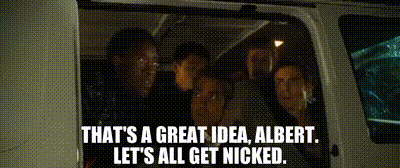
- Have you ever got nicked? I have. You can hear about it in this episode.
45. Luke & Andy’s Crime Stories (with Andy Johnson)
25. “I’m on it (like a car bonnet)”
I’ve never heard or used this phrase (except the “I’m on it” part).
This colloquialism might be said by someone that has the situation under control.
“I’m on it” is definitely a phrase.
“How’s the report going, Steve?”
“Don’t you worry, Alan, I’m on it (like a car bonnet).”
Alan thinks “That would have been alright if he hadn’t said ‘like a car bonnet at the end’….. He’s going to have to go.”
“Don’t worry Alan. I’m on it!”
26. “On the pull”
Someone that’s “on the pull” has gone out, usually on a night out, with the intention of attracting a sexual partner.
“Pull” can also be used as a verb. If you’ve “pulled,” you’ve kissed someone.
“You look nice. Are you going on the pull?”
“Get your coat, you’ve pulled.”
Also: on the lash
27. “Over-egg the pudding”
“Over-egging the pudding” means embellishing or over-doing something to the extent that it’s detrimental to the finished product. Going over the top.
Basically though, it means going too far, doing too much, pushing a situation to the max, but it is said in a pejorative and disdainful way, like “Don’t over-egg the pudding Luke”.
“We get it — you’ve injured yourself. Don’t over-egg the pudding.”
- Do you think they over-egged the pudding at the end of Avengers Endgame? Too many superheroes?
28. “Pants”
Rubbish; terrible, really bad. Poor quality.
“This is pants.”
“That film was total pants.”
How was the film? Pants
What about the match? Pants
How was England’s performance? It was pants
What about the pub where they showed the game? Pants
The beer? Pants
How about your pants? They’re pants.
Actually no, my pants are great. They’re the only thing that isn’t pants, my pants.
That’s ironic isn’t it, that your pants are great but everything else is pants, but not meaning great.
I think it’s because pants in general are bad, but my pants just happen to be great so they’re
The exception that proves the rule.
Yes, but I’ve never understood that phrase. How can an exception prove a rule? Surely it should be the opposite?
29. Par (diss)
I never ever use this. I’m much more likely to say “diss” as in “disrespect”. So let’s replace “par” with “diss” instead.
A “diss” is a disrespectful comment.
“Diss” can also be used as a verb, eg, “You just got dissed.” “Are you dissing my English?”
It comes from the word disrespect or disrespected.
“I don’t mean this as a diss, but did you remember to wash this morning?”
I don’t think I would use it unironically.
Are you dissing me?
30. “Pear-shaped”
A situation which has quickly evolved into an accident waiting to happen might be described as “gone pear-shaped.”
The phrase is reportedly old slang from the Royal Air Force and was used to described awry expeditions and flights.
“Well, this has all gone a bit pear-shaped.”
Simon, where have you been?
Well, I went out to buy some milk but things got a bit pear shaped and I ended up going to Area 51.
To be continued in part 3…
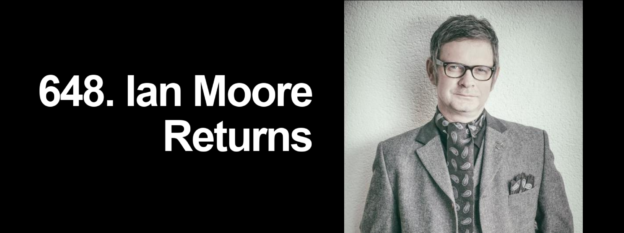









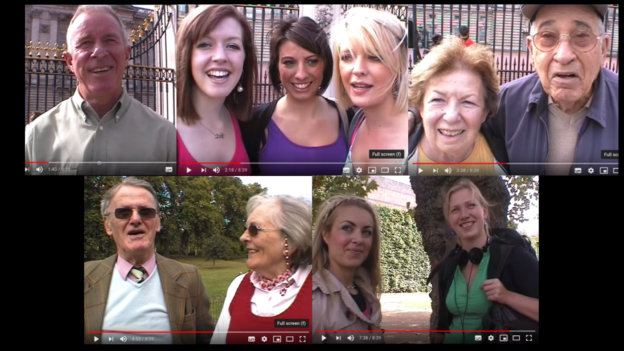



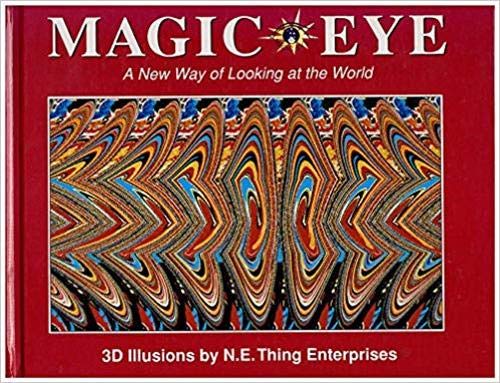
 Bill’s plane story
Bill’s plane story Bill talks to you like you’re his buddy and you’re both sitting down having a drink in a bar or something, and therefore there is a lot of swearing as you would expect in that kind of situation. I’m not suggesting you should talk like this, and swear like this. But I think it’s not a bad idea to be able to understand it and to hear some typical swearing from someone like Bill.
Bill talks to you like you’re his buddy and you’re both sitting down having a drink in a bar or something, and therefore there is a lot of swearing as you would expect in that kind of situation. I’m not suggesting you should talk like this, and swear like this. But I think it’s not a bad idea to be able to understand it and to hear some typical swearing from someone like Bill.

 So “Honestly English” – this is her own channel, her own project and therefore is a space where she can teach English in her own way and cover topics that mean a lot to her personally and since Jessica is a huge pop culture nerd her videos and blog posts all contain loads of references to movies and comic books and things like that. She is also very passionate about feminism and raising the status of women in society today.
So “Honestly English” – this is her own channel, her own project and therefore is a space where she can teach English in her own way and cover topics that mean a lot to her personally and since Jessica is a huge pop culture nerd her videos and blog posts all contain loads of references to movies and comic books and things like that. She is also very passionate about feminism and raising the status of women in society today.